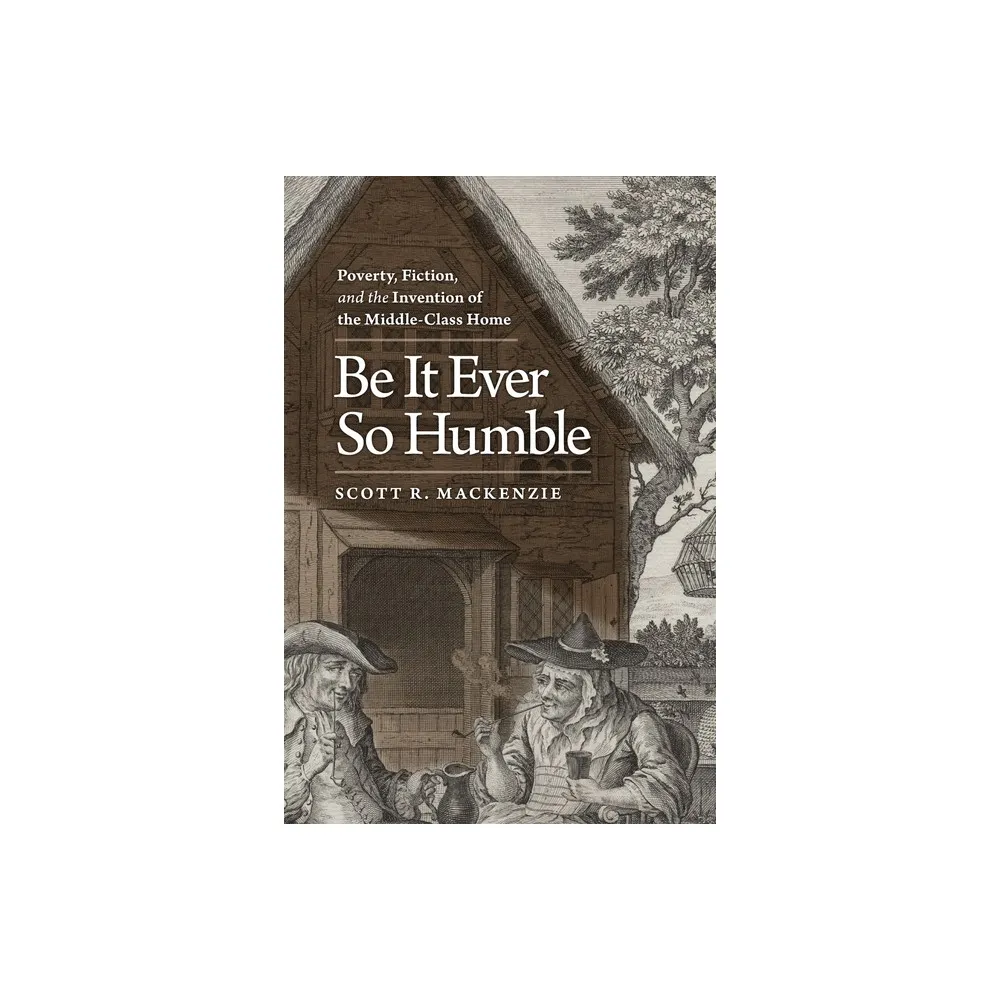Home
Be It Ever So Humble - by Scott R MacKenzie (Hardcover)
Loading Inventory...
TARGET
Be It Ever So Humble - by Scott R MacKenzie (Hardcover)
From University of Virginia Press
Current price: $49.99


TARGET
Be It Ever So Humble - by Scott R MacKenzie (Hardcover)
From University of Virginia Press
Current price: $49.99
Loading Inventory...
*Product Information may vary - to confirm product availability, pricing, and additional information please contact TARGET
About the Book Thus, the late eighteenth century proves to be a watershed moment in homes conceptual life, one that produced a remarkably rich and complex set of cultural ideas and images. A 2014 CHOICE Outstanding Academic Title Book Synopsis Before the rise of private homes as we now understand them, the realm of personal, private, and local relations in England was the parish, which was also the sphere of poverty management. Between the 1740s and the 1790s, legislators, political economists, reformers, and novelists transferred the parish systems functions to another institution that promised self-sufficient prosperity: the laborers cottage. Expanding its scope beyond the parameters of literary history and previous studies of domesticity, Be It Ever So Humble posits that the modern middle-class home was conceived during the eighteenth century in England, and that its first inhabitants were the poor. Over the course of the eighteenth century, many participants in discussions about poverty management came to believe that private family dwellings could turn Englands indigent, unemployed, and discontent into a self-sufficient, productive, and patriotic labor force. Writers and thinkers involved in these debates produced copious descriptions of what a private home was and how it related to the collective national home. In this body of texts, Scott MacKenzie pursues the origins of the modern middle-class home through an extensive set of discourses--including philosophy, law, religion, economics, and aesthetics--all of which brush up against and often spill over into literary representations. Through close readings, the author substantiates his claim that the private home was first invented for the poor and that only later did the middle class appropriate it to themselves. Thus, the late eighteenth century proves to be a watershed moment in homes conceptual life, one that produced a remarkably rich and complex set of cultural ideas and images. A 2014 CHOICE Outstanding Academic Title Review Quotes [A] learned and fascinating book. --Adela Pinch Studies in English Literature An excellent and extraordinarily valuable contribution to eighteenth- and nineteenth-century studies, Be It Ever So Humble stands as a model of interdisciplinary scholarship. --John OBrien, University of Virginia Clearly written and carefully researched, this book makes an important and transformative argument. Through a lens trained on the image of home, Mackenzie elaborates relationships between novels and writers not usually placed in conversation with one another....Highly recommended. -- Choice This is a first-rate book that makes a striking and original argument about British culture in the eighteenth and nineteenth centuries. MacKenzie substantiates his claim through meticulous, thorough readings of fiction, legislation, and a variety of anti-poverty initiatives. He writes in an engaging fashion, ranging over topics from the vestiges of the locative case in English, to Starbuckss appropriation of Jrgen Habermas, to Gothic fiction, to detailed analyses of Scottish poverty law. --David A. Bell, Princeton University About the Author Scott R. MacKenzie is Assistant Professor of English at the University of British Columbia.









